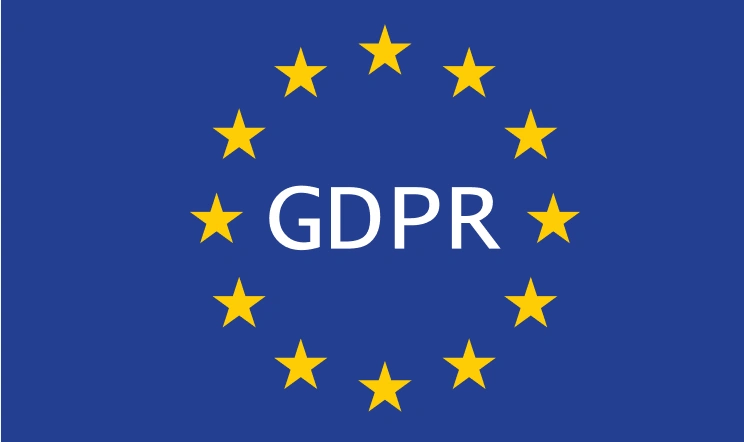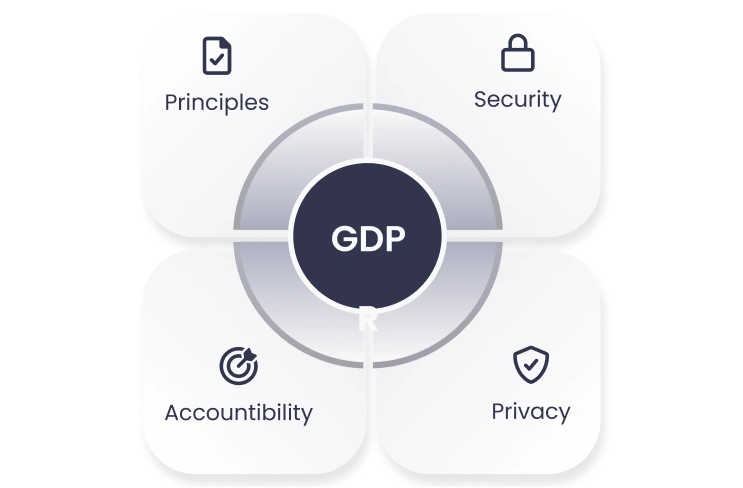We work closely with clients to understand their business processes and help them build policies and practices for airtight compliance.
GDPR mandates businesses prioritize data protection and customer privacy over profit. Ensuring secure data storage and quick access to the appropriate data is crucial for GDPR compliance. NetSuite’s robust data management policies and infrastructure assure businesses that customer data is fully protected, backed up, and readily accessible whenever required. The most successful businesses will utilize advanced technology to provide customers with exemplary data protection and outstanding customer service.


Your website is a vital sales and marketing asset for small businesses. It allows you to showcase your products and services, generate sales, and gather leads. However, as businesses increasingly go digital, incidents of cybercrime and data breaches—including the theft of customer personal information—are escalating. If your website gathers customer data, you are responsible for protecting that information.
The General Data Protection Regulations (GDPR) now constitute a law in the European Union (EU), which businesses must comply with to protect customer data. This framework specifies how to secure customer data for European citizens. Even businesses outside Europe may still have users from this region. Therefore, all businesses need to ensure their websites comply with GDPR.
The GDPR is a security and privacy law passed by the European Union that provides regulations for organizations that collect data from its citizens. Businesses, eCommerce web stores, and other organizations operating within the European Union and providing services to its citizens should be aware of the guidelines set by this privacy law and how to ensure adherence to its policies.
Here at Folio3, we assist our customers in complying with the aforementioned policies as a NetSuite Solution Provider through our partnership with NetSuite and Oracle. We help clients with NetSuite GDPR services and develop industry-standard practices and policies tailored to their specific business models.
Folio3’s partnership with Oracle NetSuite, combined with our extensive experience working with the NetSuite platform, its APIs, and underlying data structure (thanks to our broad portfolio of NetSuite Customizations and Data Connectors) has enabled us to develop a comprehensive strategy to help our customers comply with the GDPR.


The data protection laws of the European Union were updated in 2018 to include the General Data Protection Regulation, which safeguards the privacy of citizens regarding technological developments. Over 281,000 data breach notifications have been reported since its implementation, and $7.8 billion has been spent by Fortune 500 companies on GDPR compliance.
The GDPR imposes new regulations on organizations that provide services to the citizens of the European Union and collect their personal data, including but not limited to corporations, government agencies, and non-profit organizations. Failure to comply with these regulations may result in heavy penalties and fines.

Any organization that processes data of citizens of the European Union is liable to follow the guidelines set by the GDPR, regardless of where the company itself is physically located. It must adhere to the restrictions on data processors and data controllers, including the collection, transfer, storage, and use of personal data. Furthermore, it must also observe rules regarding any steps taken to track the online activities of European Union citizens.
The GDPR serves to preserve the rights of the citizens of the European Union by providing sufficient protection for their privacy and personal data. Thus, organizations that collect and store this private data must comply with the regulations set by this law. The requirements of the GDPR are:
The GDPR works to provide EU citizens with more ownership and control over private data, giving them the right to add restrictions per their preferences.
GDPR mandates appointing a data protection officer for compliance and resolving cross-border data issues with a supervisory authority for companies operating across multiple EU states.
GDPR prevents data misuse by requiring companies to enforce privacy policies, document security practices, audit systems, and promptly address errors to safeguard citizens’ personal information.
GDPR mandates companies report breaches within 72 hours, detailing the nature of breach and affected individuals, while promptly notifying those impacted to enable remedial actions.
GDPR has two levels of fines for violations on a case-by-case basis. The first is up to €10 million or 2% of a company’s annual global turnover, whichever amount is higher. The second is up to €20 million or 4% of the company’s annual global turnover, whichever is higher. A supervisory authority may also mandate the company to implement corrective actions for enhancing its data security systems and may restrict its data transfer activities.